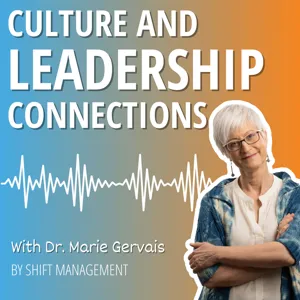The Spirit of Work: Purpose and Cora's Restaurant

The Spirit of Work: Purpose and Cora's Restaurant
Cora's Restaurant, a breakfast establishment originating in Quebec, exemplifies the transformative power of a clear organizational purpose. With a mission centered on "promoting the importance of breakfast," Cora's has expanded from a single location to a global presence, spanning North America, South America, Europe, Australia, Asia, and Africa.
The guiding principle of promoting breakfast's significance influences every aspect of Cora's operations, from menu choices to environmental initiatives. Cora's serves vibrant, nutritious breakfasts to infuse people's mornings with energy and joy. Their commitment extends beyond the dining experience; they partner with the Breakfast Club of Canada, donating a portion of each meal's proceeds to provide nutritious breakfasts for Canadian children.
Environmental responsibility is a cornerstone, with decisions rooted in local food sourcing, exclusive use of biodegradable packaging for takeout, and collaboration with environmentally conscious partners. The emphasis on a warm, friendly atmosphere is ingrained in staff training, fostering creativity, work-life balance, and opportunities for advancement.
This purpose-driven approach aligns internal and external processes, creating a harmonious organizational culture. The success of Cora's Restaurant is a testament to the profound impact of a well-defined purpose, inspiring growth and unleashing creative potential.
In The Spirit of Work, I emphasize the importance of purpose to work. A lack of purpose leads to scattered efforts, breeding cynicism and suspicion among the workforce.
Discovering Purpose – Cora's Journey:
Finding purpose, whether individually or collectively within an organization, is a challenging but critical endeavor. Cora, a divorced mother of three, stumbled upon her purpose when she sold her house to start a small snack bar. Her knack for creative, nutritious snacks evolved into the first Cora's Breakfast restaurant, emphasizing the importance of breakfast.
Over seven years, Cora and her children expanded the venture from nine restaurants in Greater Montreal to a global, multi-million dollar franchise. Her journey underscores the link between clarity of purpose, values and branding.
Purpose, Play, and Joy in Workplaces:
Purpose, like children's play, involves dedication to an activity that energizes and brings joy. However, purpose can either contribute to the betterment or detriment of society. It serves as fuel, requiring direction to ensure it serves the greater good.
Reflecting on Cora's example, how has purpose affected your business or career journey?
Reflection Questions:
- Similar to Cora, how has facing difficulty in your life contributed to personal growth and purpose?
- How did your purpose evolve when creating something new and testing it with others?
- If in a leadership position, can you state your organization's founding principle in 5-7 memorable words?
Purpose, is pivotal chapter in my book, The Spirit of Work: Timeless Wisdom, Current Realities. If you liked this episode, the book is available online on Amazon, Barnes and Noble, or directly through my website.
Support the show